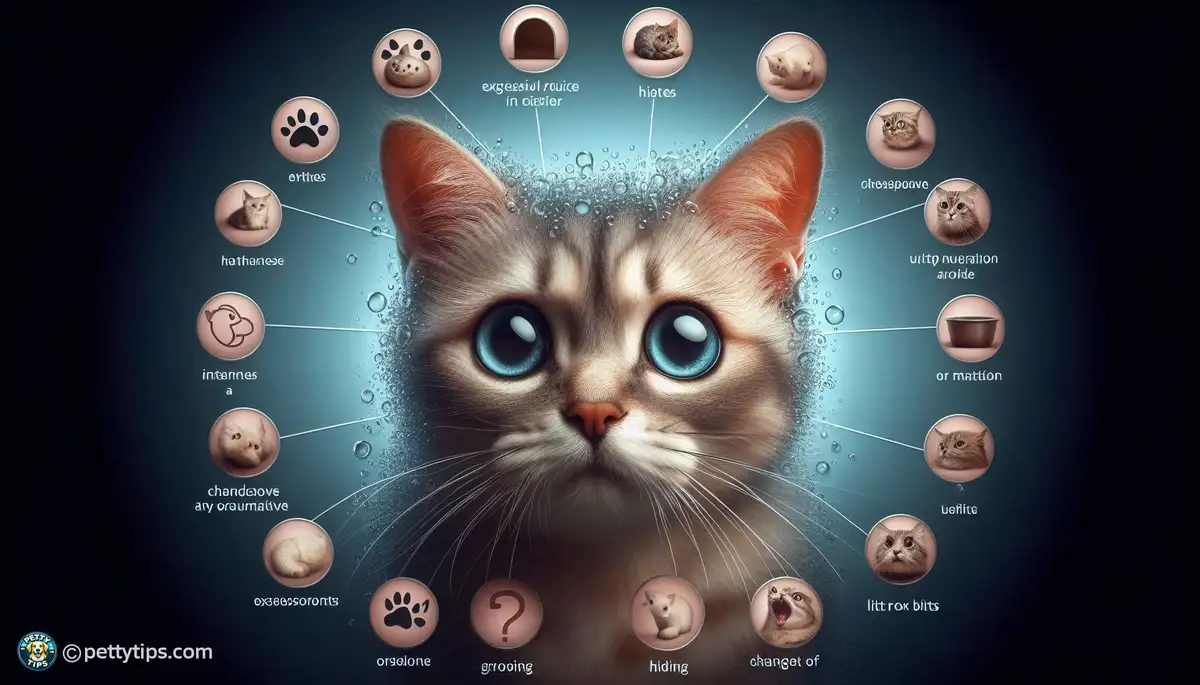- Home
- Cat Behavior
- Understanding the Signs of Stress in Cats
Understanding the Signs of Stress in Cats

Recognizing the Telltale Signs
Changes in Behavior
Cats are known for their independent and aloof nature, but even the most self-sufficient felines can show signs of stress. One of the first indicators that your cat may be feeling uneasy is a sudden change in behavior. Keep an eye out for any deviations from their normal routine. Are they hiding more than usual? Are they avoiding interactions with family members or other pets? These subtle changes could signal that something is amiss in your cat's world.
Appetite and Eating Habits
Another key indicator of stress in cats is changes in their appetite and eating habits. Just like humans, cats may experience a decrease or increase in appetite when they are feeling anxious. Some cats may lose interest in food altogether, while others may stress-eat and consume more than usual. Pay attention to your cat's eating patterns and monitor any significant shifts, as they could be a sign of underlying stress or discomfort.
Litter Box Issues
Issues with the litter box are often a clear indication that your cat is feeling stressed. Cats are typically fastidious creatures when it comes to their bathroom habits, so any changes in this area should be taken seriously. If your cat suddenly starts urinating or defecating outside of the litter box, it could be a sign of stress-related behavior. Additionally, excessive grooming or overgrooming, especially around the genital area, may also point to stress-induced issues.
Vocalization
While some cats are naturally more vocal than others, excessive meowing or vocalization can be a sign of stress. Pay attention to the frequency and intensity of your cat's meows, as well as any changes in their tone. Cats may vocalize more when they are feeling anxious or stressed, seeking attention or trying to communicate their discomfort. If your cat's meowing seems out of the ordinary or becomes incessant, it's worth investigating further to identify the underlying cause.
Common Causes of Stress in Cats
Environmental Changes
Cats are creatures of habit, and any significant changes to their environment can cause stress and anxiety. Whether it's moving to a new home, rearranging furniture, or introducing a new pet or family member, disruptions to their familiar surroundings can unsettle even the most confident cats. Pay attention to how your cat responds to changes in their environment and try to minimize stressors as much as possible.
Lack of Stimulation
Boredom and lack of mental stimulation can also contribute to stress in cats. Cats are natural hunters and explorers, and they thrive on mental and physical stimulation. If your cat is not provided with enough opportunities for play and enrichment, they may become stressed and exhibit undesirable behaviors. Make sure to provide plenty of toys, scratching posts, and interactive play sessions to keep your cat engaged and satisfied.
Health Issues
Underlying health issues can also manifest as stress in cats. Pain, discomfort, or illness can cause changes in behavior, appetite, and mood. If your cat is displaying signs of stress, it's essential to rule out any potential medical causes by scheduling a visit to the veterinarian. A thorough examination and diagnostic tests can help identify any underlying health issues and ensure that your cat receives the appropriate treatment and care.
Social Stress
Cats may also experience stress related to social interactions with other pets or family members. Competition for resources such as food, water, and attention can lead to tension and conflict in multi-cat households. Additionally, cats may feel stressed if they perceive a threat from unfamiliar animals or people in their territory. Providing separate resources and spaces for each cat and managing introductions carefully can help alleviate social stress and promote harmony in the household.
Managing Stress in Cats
Create a Safe Space
One of the most effective ways to help a stressed cat is to create a safe and secure environment where they can retreat when they feel overwhelmed. Set up a quiet, secluded area in your home with cozy bedding, toys, and litter box access. Encourage your cat to use this space by providing positive reinforcement and rewards when they retreat to their safe space.
Establish Routine and Consistency
Cats thrive on routine and consistency, so establishing a predictable daily schedule can help reduce stress and anxiety. Feed your cat at the same times each day, provide regular play and exercise sessions, and maintain a consistent bedtime routine. Minimize changes to your cat's environment whenever possible and avoid sudden disruptions to their routine.
Provide Enrichment and Stimulation
Keep your cat mentally and physically stimulated by providing plenty of opportunities for play and exploration. Rotate toys regularly to keep them interesting, invest in interactive feeding puzzles, and create vertical spaces for climbing and perching. Engage your cat in interactive play sessions using toys such as wand teasers or laser pointers to mimic hunting behaviors and provide mental stimulation.
Seek Professional Help if Needed
If your cat's stress persists despite your efforts to manage it, don't hesitate to seek professional help from a veterinarian or animal behaviorist. These experts can assess your cat's behavior and environment, identify underlying causes of stress, and recommend personalized strategies for managing and reducing stress. In some cases, medication or behavior modification techniques may be necessary to help your cat cope with chronic stress and anxiety.
Conclusion
Understanding the signs of stress in cats is essential for promoting their health and well-being. By recognizing the subtle cues that indicate your cat is feeling anxious or overwhelmed, you can take proactive steps to address the underlying causes and provide support and comfort to your feline friend. Whether it's creating a safe space, establishing a routine, or seeking professional help, there are many strategies available for managing and reducing stress in cats. By prioritizing your cat's emotional and physical needs, you can help ensure that they lead happy, healthy, and stress-free lives.
